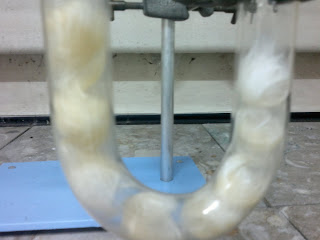Classroom Chronicles
This little-baby blog was purposely made for Method of Teaching Science course(SXEP3207).
Thursday, March 24, 2011
Friday, March 4, 2011
PRACTICAL WORK IN SCIENCE
Involved 3 phases,
- positive attitude towards science
- development of scientific concepts
- inductive
- problem solving
- Pre-laboratory
- Laboratory work
- Post-laboratory
•Enhance scientific and thinking skills
•Through practical work:
- enhance scientific, manipulative and thinking skills- positive attitude towards science
- development of scientific concepts
•Approaches:
- deductive / verification- inductive
- problem solving
Tuesday, March 1, 2011
Thursday, February 24, 2011
Wednesday, February 23, 2011
Thursday, February 17, 2011
TEACHING APPROACHES II
Science, Technology and Society
Science is defined as knowledge of general truths.
Technology is the application or usage of knowledge in a particular area.
Society is a collection of relationships between individuals, including different economic, cultural, or political properties with a common end or goal; it can be a community and also a social group or organization.
When these three things are combined, it is learned that science technology and society is the application of a skilled technique or a general truth and how it affects our society and vice versa.
Science and technology has impacted our society in such a large number of ways that its evidence is everywhere.
0
0
Mastery learning
•An approach that ensures all learners are able to acquire and master the intended learning outcomes
•Based on the principle that learners are able to learn
•Learners learn on their own pace
•Elements of remedial and enrichment activities
'The saddest aspect of life right now is that science gathers knowledge faster than society gathers wisdom.'
(Isaac Asimov)
Thursday, February 10, 2011
TEACHING APPROACHES
Teaching of science can be divided to two basic approaches
- inductive
- deductive
Inductive
-experiences with instances of a concept or principles.
Deductive
-receiving ideas and explanation of a concept or principle.- Inquiry learning
- Teaching science using inquiry method implies the need to shift from‘ teachers presenting information’ to ‘ students learning science themselves’ through active involvement.
2. Constructivism
- Knowledge is constructed by learners through an active, mental process of development; learners are the builders and creators of meaning and knowledge.
3. Contextual learning
- reality-based, outside-of-the-classroom experience, within a specific context which serves as a catalyst for students to utilize their disciplinary knowledge, and which presents a forum for further formation of their personal values, faith, and professional development.
'Education is not the filling of a pail, but the lighting of a fire.'
(William Butler Yeats)
(William Butler Yeats)
Subscribe to:
Comments (Atom)













